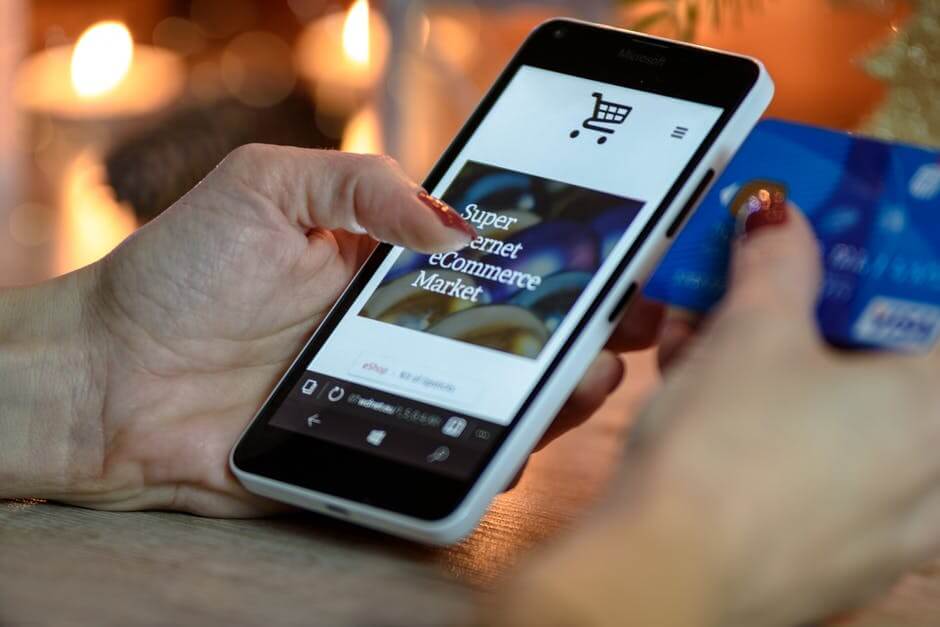Business
How to be a vigilant consumer and avoid personalized ads
Blocking cookies is one way to prevent personalized ads from appearing.

To get an idea of how smart marketers have become, spend a few minutes online. Just hint that you might be interested in a product by doing a search or browsing a big site like Amazon.com. It’s enough to trigger a never-ending cascade of ads that seems to follow you around, no matter where you go.
The practice, which is called retargeting, has become so sophisticated and pervasive that it’s almost impossible to avoid—or resist.
“It’s reached a point where targeting can be extremely specific,” says Ashwin Ramesh, CEO of Synup, a marketing consultancy. “Targeting and retargeting options are not just cookie-based anymore. With the birth of geofencing and hyperlocal targeting, apps and businesses can use a person’s location data to deliver ads that will urge them to make a purchase decision.”
Read that last quote again. They don’t just follow your electronic cookie crumbs—the digital tracks you leave when you visit another site—they also know where you are and what you like, thanks to social networks like Facebook.
In other words, they’re inside your head.
So how do you get them out of your head?
Boost your media literacy
Experts say people are only vaguely aware of the media around them. “Think about how much media the average American sees just on the way to work,” according to marketing professional Heather Logrippo. “Possibly TV or radio while drinking morning coffee on the way to or before work, billboards and mobile ads on buses and cars, outdoor on bus stops, on the way to work, internet and mobile phone ads and now even text message ads. And that doesn’t include the pre-roll ads you now see On Demand TV when you get home and want to relax in front of the television.” While Logrippo says it’s difficult even for her to resist these pitches, she knows that the beginning of the solution is media awareness—knowing what is bombarding you and when. Once you’ve figured out where the message is coming from, you can take steps to block it.
Beware of Facebook and other social networks
That’s the consensus of experts: Being online is bad, but being on social media, which collects even more information on you, is worse. “Savvy marketers are using video and psychological tactics,” says Lorrie Thomas Ross, a web marketer. Among their practices are creating a sense of urgency (“This opportunity is only good through X”) and appealing emotionally with language that speaks to someone in a way that makes them say, “That is so me!” Perhaps the best way to avoid those ads is to avoid a network like Facebook, which knows so much about you.

Say no to pop-up ads by limiting the cookies on your computer. In this way, advertisements have a narrow window of access to your browser. (Source)
Block ’em
A lot of the ads you receive, particularly online, rely on cookies. Digital marketer Nicole Firebaugh says, “It can be hindered.” She remembers working for a previous client, an obstetrics practice, and as she began conducting marketing research, the cookies started to cause advertisers to serve ads on women’s health and pregnancy. “Suddenly, I was inundated with ads and articles regarding pregnancy and infant care, all of which are not applicable to me and did not garner any attention from me,” she says. Turning off the cookies can limit the reach of these ads. However, you can also block ads entirely with an ad blocking extension.
Stop yourself. Come on, you can do it.
Just knowing that you’re being manipulated by media isn’t enough. Professionals say you have to short-circuit the sale. “From a shopper’s perspective, it’s important to do your research,” says Meg Brunson, CEO of EIEIO Marketing, a digital marketing agency in Phoenix. “Avoid the desire to make impulse purchases and only buy after reviewing all the information that you can, check business reviews and social media profiles, and make sure that the company is reputable and the products are quality,” she further added. Her pro tip is to give yourself a 24-hour cooling off period between pitch and purchase. Otherwise, you risk making an impulse buy based on a clever ad.
Remember, it’s a watered-down “Minority Report” world
The world you live in isn’t the world you think you live in, says Synup’s Ramesh. You need to know that companies are delivering ads that will “easily” sway you into making a purchase. That’s because advertisers have volumes of data about you and can target you by place and time. “We are slowly moving into a watered-down version of a Minority Report-esque world, with algorithms being able to predict what the customers want with alarming accuracy,” he says. “Data service providers give businesses insights like never before to help fuel their targeting needs. I’ll have to give this round to the marketers, because of the precision with which they double down on a customer’s interests and get them to buy a product.”
Digital advertising, says Qualcomm’s director of social media and influencer marketing Jessica Jensen, “wears us down.”
“That red handbag I put in my shopping card at Nordstrom but never bought will keep following me everywhere I go online,” she added. “The only way to muster up the willpower to resist is to put the phone down, close the laptop and walk away for 24 hours. I’ve found, if I still really want something after walking away for a day or two, it might be something to put on the birthday Amazon wish list.”
Today’s marketing is precise and highly effective. If you want to resist it, your methods must be equally as precise and effective. Understanding the medium, blocking cookies and avoiding social media are key to resisting the digital come-ons. But in the end, you have to be able to take a step back from the electronic pitches and give yourself a time-out. Otherwise, you’ll fall for it.
—
DISCLAIMER: This article expresses my own ideas and opinions. Any information I have shared are from sources that I believe to be reliable and accurate. I did not receive any financial compensation in writing this post, nor do I own any shares in any company I’ve mentioned. I encourage any reader to do their own diligent research first before making any investment decisions.

-

 Crypto2 weeks ago
Crypto2 weeks agoCaution Prevails as Bitcoin Nears All-Time High
-

 Africa6 days ago
Africa6 days agoBridging Africa’s Climate Finance Gap: A Roadmap for Green Transformation
-

 Biotech2 weeks ago
Biotech2 weeks agoEcnoglutide Shows Promise as Next-Generation Obesity Treatment
-

 Business4 days ago
Business4 days agoThe TopRanked.io Weekly Digest: What’s Hot in Affiliate Marketing [uMobix Affiliate Program Review]





















You must be logged in to post a comment Login